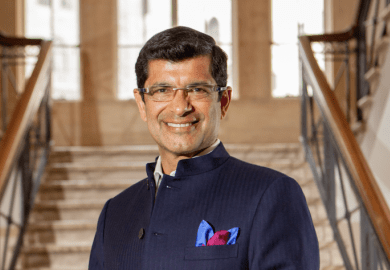In an interview marking the publication of her new book, Vaxxers (co-authored with her fellow vaccine researcher Catherine Green), Dame Sarah Gilbert says something that is both unexceptional and – given who she is and what she has done – astonishing.
This, remember, is the professor who worked day and night – even pre-empting the explosion of Covid to get a head start on what became a pandemic – to develop a vaccine that was then, thanks to the University of Oxford, distributed at cost price to a grateful world.
She and Green and their team (which is crucial – science is always a team effort) were at the forefront of research that, according to one new model published in The Lancet, may have saved the lives of 20 million people in a single year.
All this is known, but it deserves rehearsing given what Gilbert had to say in her interview.
Asked about the recognition she had received, she said: “It’s very gratifying, but none of the people who work for me have secure jobs, so I’m still raising funds to keep them in post.
“We’ve lost a lot of staff who are exhausted and no longer willing to put up with short-term, not particularly well-paid jobs. The funding really needs to change though I don’t see any short-term prospect of it getting better.”
That even such a hero, at the world’s top-ranked university, in an area of science as obviously vital as vaccinology, is struggling to keep her team together in the face of structural funding issues is both extraordinary and entirely ordinary for anyone familiar with how academia works.
That it is nothing new was hammered home by a conversation I had with Gilbert last November, when I had the honour of presenting her with Times Higher Education’s Outstanding Achievement Award.
The event took place during a brief lull in last year’s Covid chaos, when it appeared that vaccines had the virus in retreat – but by strange coincidence, it was also the evening that news began to break of a new variant in South Africa (Omicron) that seemed to have some vaccine resistance.
Gilbert’s phone started buzzing as texts came through, and it was clear that she was already planning to get back to work in the lab – indeed, she left early to do just that. But she also mentioned over the dinner that night how hard it was proving to keep her research team together because of a lack of funding opportunities. What a paradox.
Competition for jobs and funding is, of course, part of academic life, and some argue that it underpins standards in science, but the pinch is particularly acute among early career researchers.
Precarity is one issue – rolling from one fixed-term contract to the next is debilitating – while pay and conditions, the unequal power structures inherent in such a system, and the time-sapping bureaucracy of grant applications are others.
There is also another associated issue – one that was described with painful clarity in a THE feature some years ago by a postdoc searching desperately for the next rung on the ladder.
“It is rare for professors to talk honestly about the uncomfortable realities of the academic labour market,” he wrote, and in particular there remains “a strong norm against discussing non-academic employment”, since “people who can’t land academic jobs are seen as failures”.
This failure to even talk about a “Plan B” reflects the fact that the status quo “serves the interests of professors and universities much better than it does those of young scholars” (think highly skilled cheap labour, with a ready supply of replacements).
In a more recent interview with someone at the opposite level of the pyramid, Shitij Kapur, principal of King’s College London, told us that while in recent years there has, in his view, been an opening up of opportunities outside academia, “the general culture [remains] that if you can’t get one of the tenured positions, that’s almost been a failure.
“Early career researchers find themselves in this bind, that they are brought up in a culture which only really values one outcome. But the prospect of achieving that is limited.”
In our cover story this week, we delve into how countries in Europe have been attempting to address this structural precarity.
None of this is easy: as Germany and Spain are discovering, the practicalities of changing the system without big budget increases are enormous.
But finding ways to do more to address precarity and the related issues – including supportive discussion of alternative career routes – is vital for the future success not just of those involved, but of research and universities, too. And that means the world.
Register to continue
Why register?
- Registration is free and only takes a moment
- Once registered, you can read 3 articles a month
- Sign up for our newsletter
Subscribe
Or subscribe for unlimited access to:
- Unlimited access to news, views, insights & reviews
- Digital editions
- Digital access to THE’s university and college rankings analysis
Already registered or a current subscriber?







